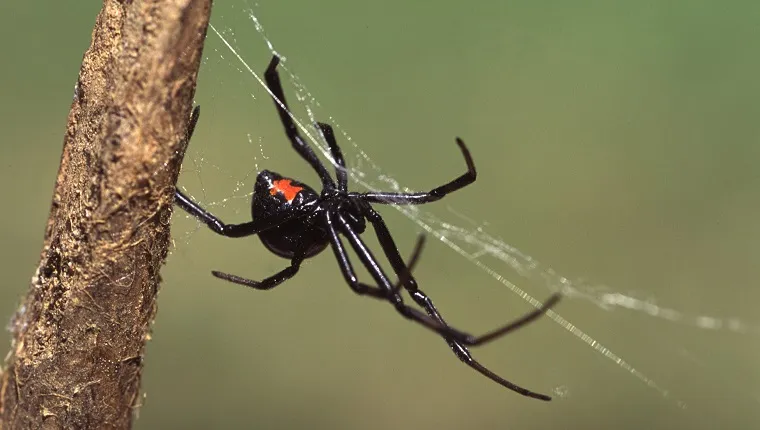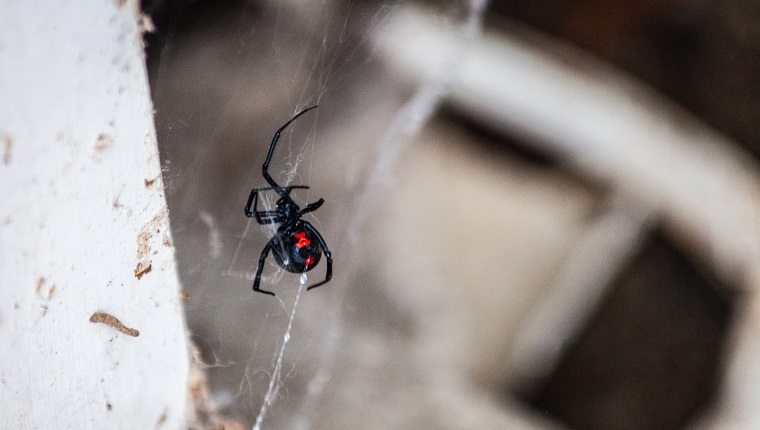Black widow spider poisoning in dogs happens when a black widow bites and injects venomous neurotoxin into the dog’s body. This can cause a range of symptoms, including muscle pains, tremors, and paralysis.
In some cases, it can prove fatal to a dog, so it’s always vital to speak to a veterinarian straight away if you notice that a black widow has bitten your dog.
As a note, while female black widows carry poisonous venom, male black widows are non-toxic in general.
If you see signs that your dog might be at risk of poisoning from the bite of a black widow, then you must consult your veterinarian for a proper diagnosis and course of treatment. Here’s what you should know about the symptoms, causes, and treatments of black widow spider poisoning in dogs.
Symptoms Of Black Widow Spider Poisoning In Dogs
Black widow spider poisoning in dogs can produce a range of symptoms. Some of the most common symptoms include:
- Paralysis
- Tremors
- Drooling a lot
- Increased heart rate
- Issues with breathing
- Increased blood pressure
- Bad muscle pains (especially around the abdomen)
- Diarrhea
- Vomiting
In severe cases, black widow spider bites can prove fatal to dogs if they do not receive immediate medical care.
Causes Of Black Widow Spider Poisoning In Dogs

Black widow spider poisoning can affect all dogs. It can happen both outside and indoors, due to black widow spiders living in both environments.
You can identify black widow spiders by their size and markings: Adults are around two to two-and-a-half centimeters long and feature a red or orange marking on their body.
In general, very young and senior dogs have a higher risk of experiencing an extreme adverse reaction to black widow spider bites because they tend to have underdeveloped or weakened immune systems.
Additionally, dogs who suffer from high blood pressure have a higher risk of fatality from black spider bites.
Veterinary Treatment
If you notice that your dog has been bitten by a black widow spider, then you must consult with your veterinarian straight away. The vet may order a full physical examination and blood tests might be ordered.
If your dog begins to suffer from diarrhea or starts vomiting, it can be useful to bring a sample along for your vet to analyze.
Treatment often involves a spell in hospital. This is so that the vet can administer supportive care, including intravenous fluids, oxygen therapy, and appropriate medication. In many cases, vets will use anti-venom medication.
Has a black widow spider ever bitten your dog? Did you need to take your pet to the vet to help them recover? Tell us all about it in the comments below.









